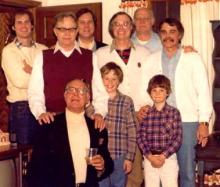Church

The 2012 Wild Goose Festival East wrapped up just under a week ago and I am still trying to process my experience there. As I tweeted as I drove away from the fest, I left feeling exhausted, hopeful, and blessed – that strange combination that reflected the emotional impact of my time there. And it was a truly blessed time.
I was honored with the opportunity to speak on The Hunger Games and the Gospel as well as do a Q&A on everyday justice issues at the Likewise tent. I also was able to join Brett Webb-Mitchell on a panel discussion about living with disabilities in religious communities.
But beyond those conversations I was able to help initiate, I also found a generous and safe space to connect with friends, wrestle with difficult questions, and dream of a better world. Such spaces are so rare in my life these days, that finding such at Wild Goose was a precious gift.
There are, of course, the expected complaints about the festival. It was brutally hot (and that is coming from a Texan). I never ceased to be sticky, sweaty, and stinky and there were bugs everywhere. Camping in a field where every action (and parenting attempt) is on constant display is stressful and uncomfortable. And, as with many religious gatherings, there could have been greater diversity.
For the first hour I was there as I nearly passed out trying to set up a tent in the sweltering heat, I was in a panic mode wondering why I was stupid enough to subject myself to the discomfort and imperfection of it all again this year. Yet as I entered into the experience of being a part of this crazy wonderful gathering, those issues (although ever-present) faded in significance as I found myself fitting into a place where I felt I belonged.
By now, you have probably read about the Wild Goose Festival. You have heard about the big name speakers, you were told about beer and hymns, you know about the dunk tank and the killer music and the ticks and the scorching Carolina heat.
But, awesome as all that was, it all pales in comparison to my memory of a late night conversation at the Goose with my friend Mike.
You see, Mike is one of about 1,200 people in Wake County, N.C., who are currently without housing. Some nights he lives at the shelter, other nights he couch surfs with various friends, and some nights he sleeps in the dumpster of that downtown church with the $2 million pipe organ.
Mike is one of our volunteers at Love Wins Ministries, our little ministry of pastoral care and presence to the homeless community in Raleigh, N.C. And yes, he is currently homeless. But Mike still volunteers with us, because where you live does not decide your value or define your ability to contribute.
So, when I mentioned to Mike that we were running a booth at the Wild Goose Festival and I wanted him to come as our guest and help us run it, he was skeptical.
"These are church folks, right?" Mike said. "I don't do church folks well. You know that."

I have been thinking about the church of my youth. I have been remembering, if you will, as a guy who has read too much Updike (I'll never forgive him for the Rabbit books) might remember his youth.
There is a melding of nostalgia for what was as well as what might have been. It's a mess, to be honest, a kind of lie that draws me in no matter how often I tell myself it is a lie. Sometimes these lies of memory are the heart's truth.

A few weeks ago I (an ordained minster who has gone to church my whole life) walked away from church — for three months. It is what I've decided to do with my sabbatical. You can read about my initial thoughts on my blog or on The Huffington Post. As the journey unfolds, I will be blogging about it in this series entitled, “Church No More.” I hope you will not only follow along, but add your voice to the reflection by commenting or joining the discussion on my FB page.
It might be that the thing which concerned me the most about leaving the church was losing my spiritual community. It's not that I thought the spiritual-but-not-religious folk were helplessly lonely people wandering around seeking a spiritual community. Not at all. I just assumed that it might be immensely difficult to find and plug into a community like that in the course of three months. I also couldn't help but think it would be just a bit — well, fake to seek out a community for the sake of observing them and then leaving a few months latter. Not just fake but somewhat mean spirited and completely missing the point of community.
Here's the thing, I am a minister. I understand myself to be a person who ministers by following the lead and teachings of Jesus. (I also happen to follow the teachings of many other spiritual and/or thought leaders from Buddha to Neil deGrasse Tyson, but that's for another post some other time). Because of that, the idea of life without a spiritual community gives me the heebie-jeebies. (I apologize for using such a technical term, but a duck is a duck is a duck).

Two weeks after we arrived in Portland, Amy (my wife and new senior pastor at First Christian Church in downtown Portland) decided she needed to do something meaningful to express her voice as a person of faith in the community. There already were the folks handing out tracts down on the campus of Portland State University, which is definitely not us. There were plenty of community leaders to meet, hands to shake and even media outlets to connect with so we’d have a better handle on key circles of influence.
But none of what was really what we had in mind.
The annual Pride fest was taking place that weekend along the banks of the Willamette River, and we knew we should probably go. Folks in our new congregation are in various stages in their journey of discerning where they are with regard to sexual orientation, but overall, it’s an incredibly open and loving place for all people. There are gay singles and couples who attend regularly, and who participate in leadership and other ministries like everyone else. But the fact of the matter is that most people outside the walls of the church don’t know that. And honestly, how will they ever know if we’re not willing to tell them?
Better yet, why not show them?

Post-recession America is beginning to open its wallet to charities again, but is not giving as generously to religious institutions.
While charitable donations from individuals rose nearly 4 percent overall in 2011, according to the annual "Giving USA" report, donations to houses of worship and other religious bodies dropped by 1.7 percent — a decrease for the second year in a row.
The report, compiled by the Indiana University Center on Philanthropy and released on June 19, shows that individual Americans gave nearly $218 billion last year, $96 billion of which went to religious organizations.
I spoke with Chris Yaw recently, host of an online program called ChurchNext. On it, he has dialogues with a number of church leaders about the current state of organized religion, the changing face of Christianity and what our churches may do to remain (or become) relevant, vital ministries in the world.
Here’s a video of our chat. You can also download the whole episode from his website, or catch it as an audio-only MP3.

I'm rewriting the old African-American spiritual “Down By the Riverside.”
(Don't worry. It's OK . I'm a minister).
My new version goes something like this:
Gonna lay down my robe and stole
Down by the Riverside
Down by the Riverside
Down by the Riverside
Gonna lay down my robe and stole
Down by the Riverside
Ain't goin' to church no more.
Yep! That's it. This minister is walking away from church — well, at least for the next three months.
 It started with a few pieces of construction paper.
It started with a few pieces of construction paper.
If you’ve been following my blog at all over the past few months, you know that Amy and I recently moved our family from Southern Colorado, where we planted a church eight years ago, to Portland, Oregon. Though we’re still doing ministry, it’s a completely different kind of work. Now we’re at a 133-year-old church in the heart of the city. The facility is incredible and the history of the church spans generations. But with that comes a good deal more administrative work than either of us is used to.
We found a preschool for Zoe right away. In fact, the first day she told us that we needed to leave and let her do her school thing. She’s the kind of kid who blooms wherever she’s planted. Mattias, our eight-year-old son, is a little more complicated. Aside from him having Asperger’s, the schools here don’t get out for a couple of weeks yet. This means not only that he has no other kids his age to play with, but also that the typical summer activities we could enroll him in don’t start until mid-June. The result: he gets to spend some pretty long days with us at the church.
Most times, he makes the best of it. He’s figured out how to navigate the labyrinthine halls by scooter, and he has plowed through more cartoons on the iPad than is healthy, I’m sure. But we have to work and we have no other options for him. So far, we’ve all managed.
But yesterday afternoon, he’d had enough. He looked up from his chair on the other side of Amy’s desk with tears filling his eyes. “Mom,” he said quietly, “I’m so bored.” There are plenty of adjectives that describe Mattias, but quiet isn’t one of them. So you know when his voice reduces to a whisper, he is really being sincere.
Amy came down and stuck her head around the corner into my office. “We’re going across the street to throw paper airplanes in the park, she said. “want to come?”
Image by Feng Yu/Shutterstock.
 On the road?
On the road?
Under the weather?
O could you just not get yourself together to make it to church this weekend?
Bless your heart. We've got you covered.
Here for you edification and instruction, are three good lessons in video and audio form, from pastors Tripp Hudgins, Jeff Tacklind and Grace Imathiu ... inside the blog.

Ah, the life of the church. So many arguments, so little time.
The list of subjects about which the saints disagree is seemingly endless, encompassing both the profound and the woefully mundane.
The ordination of women. The proper role of religion in politics. Climate change. Homosexuality and same-sex unions. Pre-, Post-, or A-millennialism. Biblical translation. Gender pronouns for God. How best to aid the poorest of the poor. How best to support the sanctity of marriage. Hell. Heaven. Baptism. Which brand of fair-trade coffee to serve in the fellowship hall. The use of “trespass/es” or “debts/debtors” in reciting the Lord’s Prayer. Whether to use wafers, pita, home-baked organic wheat, gluten-free or bagels at the communion table. What color to paint the narthex.
It should come as no surprise to most Christians that the world outside the church looking in sees it rife with conflict, bickering, arguments and castigation — of the “unbeliever” and fellow believers alike.
Frankly, it also should come as no surprise to the rest of the world that the church — by virtue of being a community of humans — naturally would have such disagreements and discord.
Paul Simon says there must be 50 ways to leave your lover. The Naked Pastor figures there must be at least three ways to leave your church.

This week I got an email from my friend Pastor Jodi Houge of The Humble Walk church in St Paul. Amy Hanson had emailed her asking if, when she’s at Luther, Amy could do her field ed placement at Humble Walk. So afterward when Jodi emailed me she said Oh my gosh thanks for sending Amy our way, I love her already. Jodi loves Amy Hanson already but not because of Amy Hanson’s winning personality, position or portfolio. Jodi Houge does not love Amy Hanson because Jodi’s so nice and has a big heart. Pastor Jodi loves Amy Hanson already based solely on the fact that Amy Hanson is loved by us. Based on the fact that Amy Hanson is our friend she will have an honored place at Humble Walk church in St Paul Minnesota.
In our Gospel text from today Jesus says to abide in his love, to love one another and then he calls his disciples friends. But the Bible tells us that he had other friends too. Mary, Martha and Lazarus of Bethany were Jesus’ friends. He like, totally hung out their house all the time – they stocked his favorite beer in the fridge. And when Lazarus died, Jesus stood at the tomb of his dead friend and wept. These were Jesus friends. And since at our Big Fat Church Meeting after liturgy today we are going to talk about things like sacred hospitality, I started to wonder what kind of hospitality 3 strangers who came to our church might receive if we found out that those 3 strangers were actually Mary Martha and Lazarus. If we knew that the people entering the doors of this, our little House for all Sinners and Saints, were actually Jesus’ friends, that they were those whom Jesus loved then despite what we thought of their personalities, despite how we felt about them or their status in society or their politics, despite any of this they would automatically have an honored place, right?
We would, as Jodi does Amy, already love them not based on how we felt about them, but we would love them with the love Jesus speaks of in our gospel text for today… which in Greek is called agape love.

I can’t lift my arms.
They scream in muscle soreness after 3 weeks of CrossFit workouts. At the age 43 I’ve found myself in poor physical condition; my career having taken over my usually fit body. But a block behind our house in a slightly ghetto strip of businesses along a sidewalk dotted with empty gin bottles and crushed packs of generic cigarettes is a little white building with red trim. Inside this vintage garage which 2 years ago was where most of the neighborhood dope slinging happened, is now a CrossFit gym.
When walking my dog I’d pass by the crazy people lifting weights and stepping up and down on giant tractor tires and pulling themselves up over steel bars and I thought I surely was not in good enough shape to show up.
But three weeks ago I did just that. I hauled my out of shape middle-aged ass over to the gym and have worked out four days a week for the last three weeks.
Now I can’t lift my arms.
I was talking to my husband about why I am loving CrossFit and it made me realize that it is for some of the reasons I love church.

While I believe in the principle of church-state separation, there are times when it is taken too far. Today’s example is a food pantry in Seymour, IN.

TRENTON, N.J. — As part of a survey to understand why they have stopped attending Mass, a few hundred Catholics were asked what issues they would raise if they could speak to the bishop for five minutes.
The bishop would have gotten an earful.
Their reasons ranged from the personal ("the pastor who crowned himself king and looks down on all") to the political ("eliminate the extreme conservative haranguing") to the doctrinal ("don't spend so much time on issues like homosexuality and birth control").
In addition, they said, they didn't like the church's handling of the clergy sex abuse scandal and were upset that divorced and remarried Catholics are unwelcome at Mass.

I’ve written a couple of pieces recently that have gotten a lot of attention about why younger people tend to walk away from church.
If you haven’t seen them yet, here are the links:
Seven Reasons Why Young Adults Quit Church
Four More (BIG) Reasons Why Young Adults Quit Church
Some readers suggested I might also post a piece about why young adults come back to church. Though I can’t say for sure why ALL young adults in church do so, I can share a few reasons why I, as a young adult, returned to church after an absence of ten years.
Here is a condensed version of a workshop I offer on the concept of “Church 2.0.” I talk in it about the popularity of things like the “Why I Hate Religion But Love Jesus” video and Mark Driscoll’s Acts 29 Network of churches.
But while we can learn something from what these kinds of voices are saying and doing, we can also do this while still offering the world a more liberating theology and a radically inclusive community.
Watch the video of Christian's workshop inside the blog...

There has been a lot of talk lately — both in the public sphere and most definitely here at the Sojo offices—about young people leaving the church.
I would argue that--while some of my fellow millenials are jumping ship on Christiainity--many are not so much leaving the big-C “Church,” (see my post on the definition of the word), as they are leaving established churches. The surveys show a migration from a particular denomination to “no religion.” To me, that doesn’t say atheist/agnostic; it just says that this generation of Christians doesn’t want to be labeled.
If you look at the numbers, millenials are quitting the church, not quitting Jesus. Unaffiliated does not necessarily mean unChristian.
My generation doesn’t want the “Southern Baptist,” “Wisconsin Evangelical Lutheran Synod,” “Roman Catholic” affiliations thrust upon us. Not only do we disagree with some of the tenants of said denominations, but each title carries all sorts of baggage left at our feet.
We’ve seen post after post listing possible catalysts to twenty-somethings turning away from the religion of our fathers in droves. Presidential hopeful Rick Santorum blames college. The reasons listed here on God’s Politics, in books and by church leaders themselves each probably factor in to some degree.
But I do want to dismiss some of them.

There has been a surprisingly positive response to the article I published yesterday called “Seven Reasons Why Young Adults Quit Church.” And as I noted, it was hardly a comprehensive list. There were several others I thought were worth noting if I’d had the room, so I thought I’d continue with the same theme today.
And as I said in yesterday’s article:
- Although the answer(s) vary from person to person, there are some general trends that I think apply in most cases, and;
- In the list below, when I refer to “we,” “I” or “me,” I’m referring to younger adults in general, and not necessarily myself.